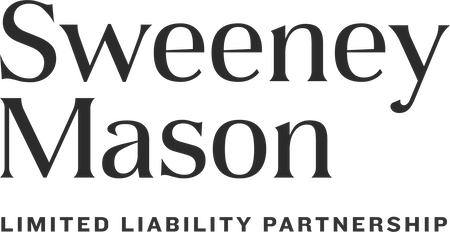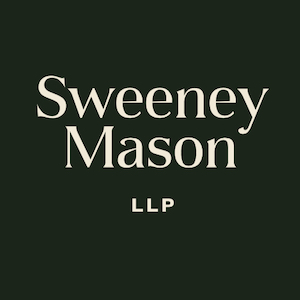Referral Fees In Connection With Construction Projects
Consider three referral situations: 1. A contractor pays a fee to a designer for referring a client for construction work; 2. A vendor of furniture or fixtures, who is not a contractor, pays a fee to a designer for referring a client for the purchase of furniture or fixtures; and 3. A designer pays a fee to someone for referring a client for design services. Which fees, if any, are illegal?
Absent actual bribery, some form of fraud or statutory prohibition, payment of referral fees is not illegal. Thus, the starting point for the analysis of the situations presented above is whether there is a statutory prohibition.
Potentially relevant is California Business & Professions Code § 7157 which reads as follows:
Prohibited inducements
(a) Except as otherwise provided in subdivision (b), as a part of or in connection with the inducement to enter into any home improvement contract or other contract, which may be performed by a contractor, no person may promise or offer to pay, credit, or allow to any owner, compensation or reward for the procurement or placing of home improvement business with others.
(b) A contractor or his or her agent or salesperson may give tangible items to prospective customers for advertising or sales promotion purposes where the gift is not conditioned upon obtaining a contract for home improvement work if the gift does not exceed a value of five dollars ($5) and only one such gift is given in connection with any one transaction.
(c) No salesperson or contractor’s agent may accept any compensation of any kind, for or on account of a home improvement transaction, or any other transaction involving a work of improvement, from any person other than the contractor whom he or she represents with respect to the transaction, nor shall the salesperson or agent make any payment to any person other than his or her employer on account of the sales transaction.
(d) No contractor shall pay, credit, or allow any consideration or compensation of any kind to any other contractor or salesperson other than a licensee for or on account of the performance of any work of improvement or services, including, but not limited to, home improvement work or services, except: (1) where the person to or from whom the consideration is to be paid is not subject to or is exempted from the licensing requirements of this chapter, or (2) where the transaction is not subject to the requirements of this chapter.
As used in this section “owners” shall also mean “tenant.”
Commission of any act prohibited by this section is a misdemeanor and constitutes a cause for disciplinary action. (Emphasis added)
Section 7157 is as confusing and ambiguous piece of legislation as one can imagine with identification of subject donors and beneficiaries and a host of exceptions. What does it mean?
Regrettably, there are no appellate Court decisions which interpret the Section.
We only have one interpretive opinion from the California Attorney General, Opinion No. 71-118, 54 Ops. Cal. Atty. Gen. 263 wherein it was determined that the offer of a free gas furnace conditioned upon the purchase of an air conditioning system violated 7157(a). That is, the Attorney General concluded that subsection (a) prohibited the provision of inducements to the prospective customer as well as “others.”
The Attorney General stated the intent of the legislature was “to proscribe the giving of substantial gifts by contractors which are conditioned upon obtaining home improvement business either directly with customers or with others to whom the contractor is referred by said customers.”
The Attorney General opinion does appear to be consistent with the language of subsection (a) which prohibits payment, credit or allowance “to any owner.” Presumably, the subsection is intended to prohibit the type of conduct depicted in the movie “Tin Men” staring Danny DeVito and Richard Dreyfuss wherein aluminum siding contractors provided inducements to owners to become the advertising site on their block.
Notably, though, there is nothing in subsection (a) prohibiting a contractor from paying referral fees to anyone other than an owner.
The only other interpretive statements, although they are not regulatory or precedent, come from the Contractors State License Board publication “California Licensed Contractor.” In the Winter/Spring 2011 edition the CSLB made the general statement that “any time a fee is requested or required for referring contracting work, a state law is being violated.” The publication went on to reference referral fees in the disaster response business (presumably fees paid by contractors to insurance agents). The CSLB based its statement on subsection (d) of Section 7157. However, in the Summer 2011 edition, the CSLB clarified its position and stated:
CLC editorial staff wants to point out that this law pertains to contractors paying any type of inducement to other contractors. This law does not include people who are not contractors. (Emphasis original)
The above statement appears to be consistent with the express language of the subsection which prohibits payments by a “contractor” to “any other contractor” or “salesperson other than a licensee” and excepts payments to or from persons “not subject to” or “exempted from” licensing requirements or transactions not subject to the license laws. Notably, there are small contracting projects which are exempt and certain salespersons are subject to the license laws which would explain the inclusion of the exception.
But, again, there is nothing in subsection (d) which covers anyone who is not subject to the contractors licensing laws.
In summary, and simplistically stated, what is prohibited under Section 7157 appears to be only:
(a) referral fees by contractors to owners or prospective customers for home improvement work;
(b) referral fees to or from salespersons except the contractor they represent; and
(c) referral fees between contractors (or salespersons) for work requiring a license.
There is no application of the statute to interior designers or other vendors except to the extent they might be engaged in contracting with or without a license.
Applying the foregoing to the example situations stated above, none of the referral fees are prohibited. There is nothing prohibiting a contractor from paying a referral fee to a designer unless the relationship somehow morphs into the designer becoming a salesperson. The statute has no application to non-contractors, so it does not prohibit a mere vendor or a designer from paying a referral fee for either the sale of materials or procurement of design services.
We are not aware of any other statutes which might prohibit such referral fees.
But, there are potential issues with disclosure. For example, an owner might assert that an undisclosed payment by a contractor to a designer is fraudulent particularly where it results in the owner paying an unfairly high price for the work. Thus, one must always approach referral situations ethically and with due care.

